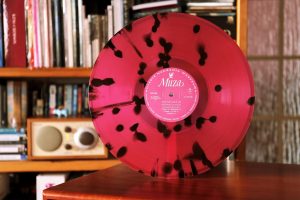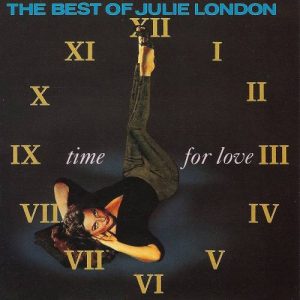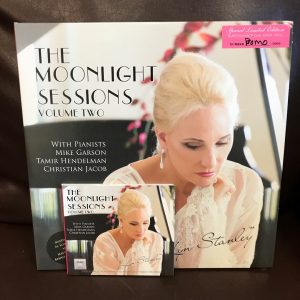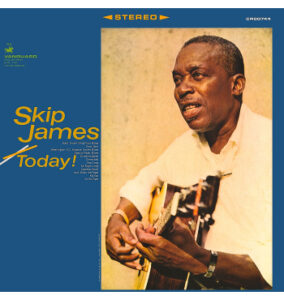Casey, Where I Go When I'm Sleeping. Hassle Records.
Casey is an emotional melodic hardcore band from South Wales, United Kingdom. Their second full-length album, Where I go When I'm Sleeping, is a continuation of the band's journey through music.
The album builds upon the overall sound of the band, nailing down their feel and allowing them to come into their own. The sea of melodic hardcore bands that surged into existence over the past few years all have their own unique sound in the hardcore genre, but still felt similar to one another. Casey, however, made a statement that the genre can be interpreted in many ways. It's not as cut and clear as it has to be.
Where I go When I'm Sleeping is an excellent example of how the genre of melodic hardcore can be anything the creator wants it to be. The album includes a heavy dose of fast parts, slow parts, melodic parts, intense parts, and just about anything you would come to expect from a melodic hardcore band, but what Casey does different is how these parts are arranged. The rules do not apply to Casey.
Casey's biggest draw is the storytelling through the lyrics written by the singer, Tom Weaver. The first songs they released were about a bad breakup Weaver had, then their second album dealt with that a little more, but also included the singer's family. This album is Weaver finally being able to talk about what has happened in the past few years. On prior albums Weaver mentioned this concept, but never went into full details about it. "Where I go When I'm Sleeping," feels as if Weaver is finally able to talk about his journey and is finally able to come to terms with it.
The album begins with "Making Weight," a slow song incorporating Weaver's beautiful singing voice. Lyrically, this song sums up what happened during his long stay of depression. How he changed physically, and why it got so bad. The background music is ambient, with a few guitar chords spread about to drive the song. It's a beautiful song, despite being depressing.
"Wavering," the second song, is the complete opposite of the first song. Where "Making Weight" is slow, this song is fast and aggressive. It also contains probably the saddest set of lyrics Weaver has ever written. This song really shows a lot of anger. Anger about how he was so weak, both physically and mentally. Musically this song is chaotic, and reflects the lyrics. The bassist, Adam Smith, really shines here. The bass line throughout the song is brought to the front and drives the song.
The next three songs, "Phosphenes," "&," and "Fluorescents," are all thematically related. Both "Phosphenes" and "Fluorescents" are singles, and it is obvious why. Not only are they lyrically great, but the songs have the feel of being singles. They flow well, have catchy parts, and really give you a great feel of the album. The song "&" is a short instrumental connecting the two songs. Lyrically these songs are about the medicine Weaver was given during his stay at hospitals, due to his severe, clinical depression. Musically, these songs are melodic, and a bit different than other songs on the album, but they work well with Weaver's vocal patterns. Overall these three songs make up the best songs on the album. The way the music cuts out right as Weaver says an impactful lyric, or the way Weaver stops singing and lets the music take over, really shape these songs into something great.
The unfortunate thing is that the next 4 songs are all mostly forgettable. There is nothing wrong them. In "Bruise," Weaver does his vocal patterns over the driving music in an interesting way. "Flowers by the Bed" has a catchy, almost, anthem like part. "Needlework" reminds me a lot of Hotel Books, and has no aggressive vocals. But "Needlework" falls short on the lyrics. Casey's biggest problem is that it is a band made up two great things, lyrics and music. They are balanced so well, to the point that one cannot carry the other. So, if one fails the other does too. "Needlework" is a great example of that. The lyrics are not as good as other songs on the album, and therefore the song overall suffers.
The album picks up again in the last three songs. Starting with "The Funeral," the band catches up with their previous steam. Being the longest song on the album, at almost 5 minutes, it takes you on a journey. Starting with a slow beginning, and then heading into an aggressive part that cuts off the sad singing. It's great imagery how Weaver is both sad and angry at himself. He is sad, because he has crippling depression, but also angry at himself for the same reason. It really comes through in the music. "The Funeral" does a great job of showing the two sides of Weaver.
The next song is the title track. Unlike the previous title track on the first album, this one is instrumental. While this song falls short in the lyric department, it really steps up on the music side. This song feels like a culmination of everything. Despite Weaver's absence on the track, the song is still incredibly emotional and it reflects the title well. You can imagine a music video with Weaver in bed trying to sleep, tossing and turning, as mentioned throughout the album, with this song playing. It's eerie and matches the mood of the album perfectly.
The last song on the album, "Wound" is the one that hits the hardest. Weaver finally explains what happened and why he spent so many years of his life suffering. He does this through a beautifully said spoken word segment at the end of the song. Summing up everything that has been said in the album and then some, this track is almost like he is coming to terms with everything and is now fine with it. He's said a lot of things about himself in the songs on this album, and the previous ones. This album, this song, is Weaver's catharsis. In fact, it seems that having this band, and being able to write these songs is what has helped the most in his life. The very last line in the song reads, "In all the ways that I am weak, I am also strong; learning how to speak gave me the strength to carry on."
The thing that makes Casey great is the storytelling coupled with the complementary music. Casey, as a whole, outdid themselves once again. From when I first heard their song, "Hell," to the end of the song "Wound," it has been a journey. A depressing journey, to be sure, but a journey worth taking.



































